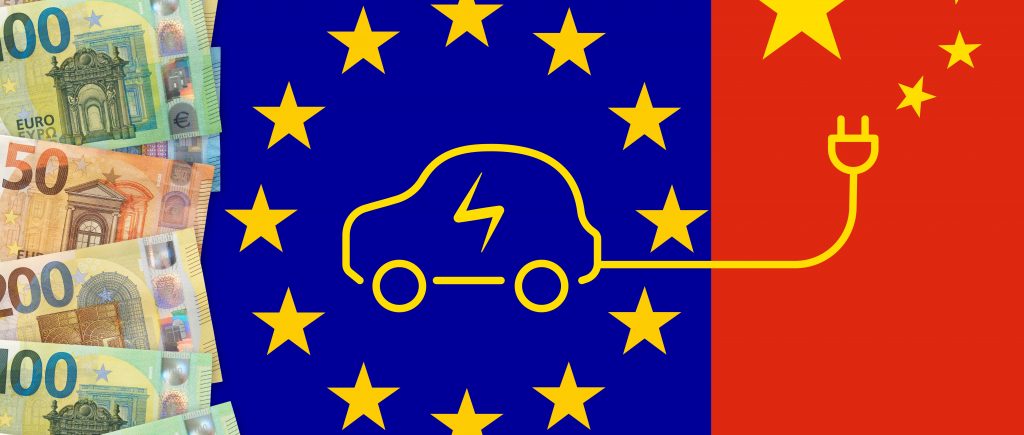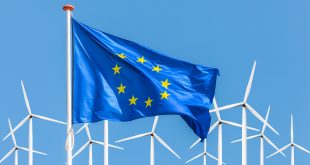The dispute between the European Union and China over electric vehicles remains unresolved. Both sides face significant risks of escalation into a full-blown trade war. While China has publicly stated its opposition to such a war, analysts believe Europe wouldn’t fare well in one. Efforts are underway through diplomatic channels to prevent this unwanted conflict, but positions remain deep for now.
Exaggerated claims and fears of a trade war:
The European Union accuses China of dumping heavily subsidized electric cars, a claim disputed by analysts citing production and sales data. EU nations fear a potential trade war’s disruption of supply chains and billions in trade, particularly given their dependence on China for raw materials and components.
Attempts to resolve the conflict
Negotiations between China and the EU are ongoing to address the electric car dispute. However, China accuses the EU of violating global trade rules and threatens retaliation. While Germany, one of the most impacted EU members, hopes to avoid tariffs, other member states are pushing for their imposition. China is lobbying EU member states to individually oppose the European Commission’s decision to impose tariffs on them.
China’s potential goals in the event of a trade war:
China will likely decide to target key EU countries with tariffs on their goods, such as:
Germany: gasoline cars (most populous country)
Italy: luxury cars (such as Ferrari and Lamborghini)
France: wine
Spain: pork
History of Sino-EU Trade relations:
China has allowed European car companies, such as Mercedes and Volkswagen, to open factories in the country to bypass high tariffs. China has also gradually reduced tariffs on imported cars over the past decades, down to 15% currently and imposes additional taxes on cars with large gasoline engines.
Potential risks to the European Union:
Trade restrictions with China may not contribute to the development of the European Union, but may even exacerbate tensions. European automakers, which have large market shares in China, risk losing their interests due to tariffs. The figures indicate a decline in German exports to China, despite an increase Exports to the United States.
Robert Habeck ‘s visit and unexpected criticism:
German Economy Minister Robert Habeck traveled to Beijing to explain the European Union’s position on tariffs on electric cars and mitigate the Chinese reaction. His visit was the first by a senior European official since Brussels imposed the tariffs, which raised concern in China and strong reactions from its leaders.
In an unexpected surprise, Habeck criticized Germany’s China strategy released 11 months ago, calling it outdated, short-sighted and inconsistent with the positions of other European countries.
Opportunity to clarify and protect interests:
Habeck’s visit represents an opportunity for Germany to explain its point of view and protect the interests of its companies, especially in the automobile industry sector, which relies heavily on the Chinese market. Germany seeks to find common ground with China and unify positions among European Union countries.
Fresh dynamics and evolving German strategy:
Habeck’s visit to China included meetings with Chinese officials and ambassadors of European Union countries, in addition to visits to Shanghai and Hangzhou. Although a meeting was not held with the Chinese Premier, Germany shows openness to dialogue.
A shift in security and economic approaches and interests:
Germany’s new China strategy acknowledges the changing nature of the relationship with China and is in line with the EU’s tougher stance. Germany also recognizes China’s influence on its security and economic interests, emphasizes the importance of Taiwan as a trading partner and closely monitors China’s movements in the Taiwan Strait and the Indo-Pacific region.
German quest to reduce dependence on China:
Driven by security and human rights concerns, Germany is diversifying its trade and investments away from China. This aligns with the European Union’s economic security strategy, as Germany reduces its dependence on China in strategic sectors. Notably, Germany’s trade with China fell in the first quarter of 2024, compared to its trade with the United States.
Risks of a large-scale trade war:
Tariffs on Chinese electric vehicles and Chinese responses could lead to a full-scale trade war The European Union faces challenges in confronting China due to its internal divisions, lack of a coherent strategy, and weak economy.
Impact on specific sectors:
Tariffs on European pork, wine and dairy products could negatively impact European suppliers and aircraft are an unlikely target as there are only two major suppliers.
China as a partner and competitor:
Germany recognizes the need for a new strategy to deal with China, focusing on economic competition and asymmetry Germany calls for a new EU-China trade agreement to address asymmetry issues Meanwhile, Germany shares the EU’s multifaceted approach to China.
Internal challenges and divisions:
Germany faces divisions within its coalition government over how to deal with China, and the German government must find a balance between economic interests and concerns about China’s practices.
Weakness of the European Union:
Europe is challenged by internal divisions, the absence of a coherent strategy, and economic weakness. Europe relies heavily on regulation and social welfare, making it unwilling to bear significant economic pain.
China’s rise in consumer industries:
China’s success in the automobile sector shows its shift towards consumer industries, and European and American companies may face threats to their economic dominance, so Europe must find an effective response to China’s rise in the consumer industries sector.

 Noor Trends News, Technical Analysis, Educational Tools and Recommendations
Noor Trends News, Technical Analysis, Educational Tools and Recommendations




